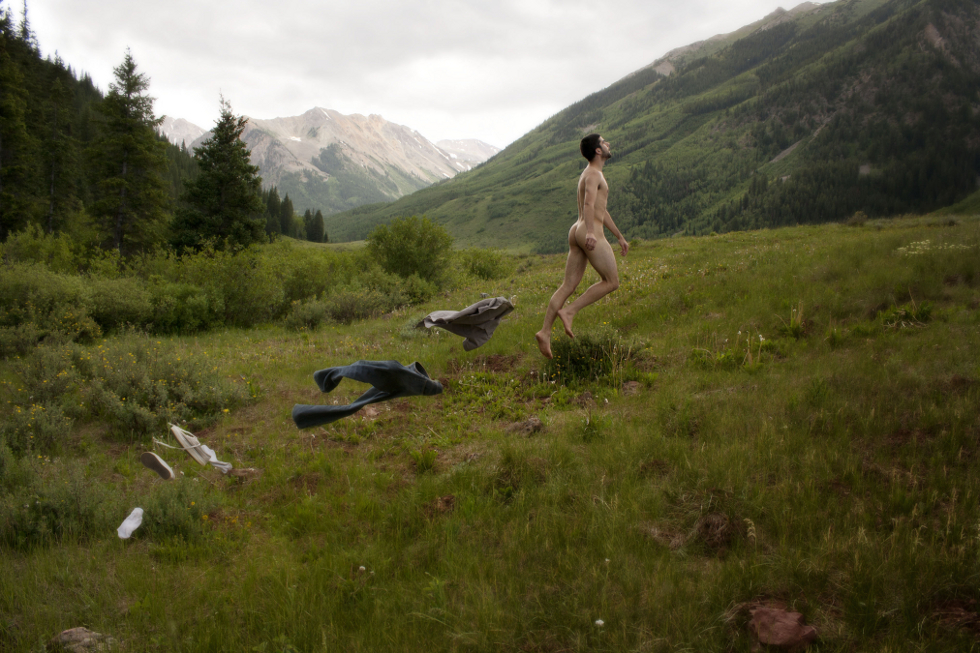proof
by Nathan Schneider

The premise of Laurence Cossé’s novel A Corner of the Veil is that someone discovers a proof of God’s existence—a real proof, finally, for good. A priest who has just seen it and grasped its amazing truth walks through the streets of Paris and looks at the people around him, imagining what it will be like when they too, soon, see what he has seen.
Probably, for a time, everything would come to a halt. People wouldn’t go to the office anymore. The children would be sent to school, but they’d stop along the way, caught up by great circles of orators in tears.
People would talk on sidewalks, in the Métro, at church doors. Ah, the priests wouldn’t know where to start! People would talk for hours in the rain. Neighbors who had always eyed each other with suspicion would be talking to each other. Couples ten years separated would phone each other from distant places.
The post office would stay closed. There would be a notice on the gate: hallelujah. On the other hand, the museums would never close again, nor the Métro, nor the public parks. The guards would never figure out where their caps had disappeared to.
For days it would feel like a kind of general strike, a huge drunken spree.
Isn’t this what we should rightfully expect of a proof? (The French yen for a general strike might be lost in translation for some American readers.) It’s what a proof should be, at least by the word’s most relevant definition: demonstrative, definitive. Nor are the other meanings entirely unrelated either, involving things like rising bread, inebriation, impermeability, and graphic design. I wonder how many thinkers through time have had a hope like this in mind for their own thoughts, especially their religious ones.
Plato, in his latter-life dialogue Laws, imagined that proofs of the gods might finally set his society right, and even that reciting them could reform criminal youths. Ibn Tufayl, a Muslim in medieval Spain, described a proof so powerful it could soothe away one’s will to live. Anselm of Canterbury wanted to share with others the burst of joy that his proof for God gave him one early morning in his monastery. Descartes and Leibniz thought their proofs might heal the rift that the Reformation had torn through Europe. And it continues today, as much as ever, if not more.
I’ve spent weeks driving around Southern California, from storefront to storefront, visiting all the organizations I could find devoted to promulgating one proof or another. There’s, for instance, the Institute for Creation Research’s old museum, tucked in an office park under a highway in Santee. I head north a while, past Saddleback Church and the Crystal Cathedral, and find Ray Comfort; he claims—alongside his ex-child-star sidekick Kirk Cameron—that there is 100% scientific proof for God’s existence in the design of a banana. I pause in downtown LA for a rooftop lunch with Sam Harris, the “New Atheist” who declared, in his surprise post-9/11 bestseller, The End of Faith, and then head back to the far suburbs to meet the scientists at Reasons to Believe in their converted Glendora strip mall. And back down along the Orange County border is Biola University—formerly the Bible Institute of Los Angeles. Today it’s home to the world’s largest philosophy graduate program, equipping master’s students with proofs before sending them off to the top mainstream, atheism-ruled PhD programs.
The dream of Cossé’s priest, and the joy of it, lives on. Craig Hazen, who runs Biola’s apologetics department, told me, “I still wake up every day thinking, I just can’t believe this thing’s true! You know?” I’m not sure, but I sort of do. Maybe. I usually wake up asking mercy or giving thanks, and rarely is it clear for what.
These things, these proofs, appear before philosophy students in textbook after textbook. They’re taught, argued about, and forgotten, sometimes saving a person’s particular faith, sometimes eroding it, and usually neither. There’s no surer way of knowing than proof, and it’s hard to imagine any more significant knowledge than that of a God. But what will count as proof, and for whom? On the world goes, in disputation, in belief and unbelieving and multitudinous forms of each. Meanwhile, some few—usually men, as it happens—keep up this search for what would really be proof of a real God, and for all that would come from finding one, in some form, or some near-enough approximation.
For most of us, it hasn’t happened yet.